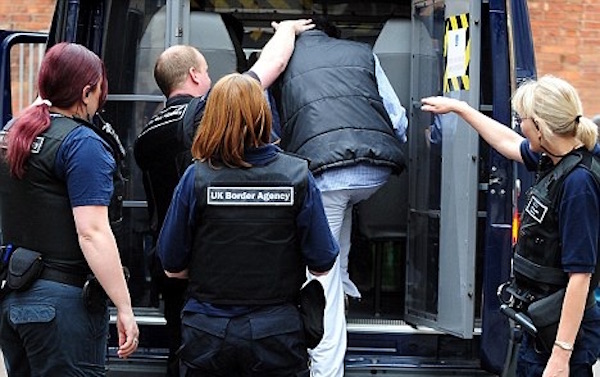
Legal experts have warned that Britain’s exit from the EU could be used as an excuse to bar Irish citizens from the Six Counties and Britain from living there, and that the rights of Irish citizens to live and work under British jurisdiction will need to be enshrined in law.
The Irish have more rights than other EU citizens to live in the ‘United Kingdom’ because of Ireland’s former status under British rule. It is been widely assumed that this specifically comes from the 1949 Ireland Act, which officially ended the status of the 26 County state as a British dominion.
But Bernard Ryan, professor of migration law at Leicester University, said this was a vague statement and had little legal value. “There is some sort of political consensus and the Ireland Act has some sort of legal aspiration, but I would not say it in itself protects the rights of the Irish,” he said.
The act was designed to treat the Irish the same as British Commonwealth citizens, who in 1949 had the right to emigrate to Britain.
Irish and Commonwealth citizens were both subsequently subjected to immigration controls, although this was generally ignored for Irish citizens, and then cancelled out by an exemption order that came into force in 1972.
This exemption, under common travel area legislation, means there is no currently no legal requirement to show a passport when crossing the border, or at British seaports and airports.
But that would change under Brexit, as currently envisaged. The chances of Irish and other EU citizens living in Britain or the north of Ireland retaining all their rights to live, work and retire there after Brexit have been rated at zero by some legal experts.
Ryan is one of the few lawyers examining the unique position of Irish citizens in detail. “Something has to be written into immigration legislation going forward,” he said.
It is thought that legislation could come in tandem with new efforts to introduce immigration controls in Britain. Ulster Unionist Party Mike Nesbitt, whose party opposed Brexit, agreed with recent political predictions that an immigration border would likely be introduced around the island of Britain. He also said he believed proposals for an electronic customs border between the North and the 26 Counties “won’t cut it”.
Mr Nesbitt was addressing a hearing in Belfast of a Westminster inquiry into the impact of Brexit on relations between the islands.
“In terms of the free movement of people, I think the border will inevitably be at the ports and the airports of Great Britain, from [Scottish port] Cairnryan down to Heathrow, which will disadvantage everybody travelling either way, but particularly the citizens of Northern Ireland making their way to the rest of the United Kingdom,” the UUP leader said.
Irish political leaders have been pushing for the Six Counties to secure special status within the EU, if not full EU membership.
The Deputy First Minister at Stormont, Martin McGuinness, said political leaders in Belfast and Dublin needed to work together to make the case for special rules to apply to the North when the EU and London government begin talks on a post-Brexit deal because “as things sit at the moment we are going to suffer big time”.
Mr McGuinness said he was encouraged that the unionist and pro-Brexit DUP also agreed that Ireland needed to be treated as a special case because of the importance of the problems presented.
However, that did not translate into a shared position when the Stormont Assembly voted narrowly this week against a motion calling for the North to be granted EU special status. The motion, backed by the SDLP and Sinn Fein but opposed by the two unionist parties, was beaten by just one vote after the socialist People before Profit abstained on the basis the motion “did not go far enough”.
![[Irish Republican News]](https://republican-news.org/graphics/title_gifs/rn.gif)
![[Irish Republican News]](https://republican-news.org/graphics/title_gifs/harp.gif)

